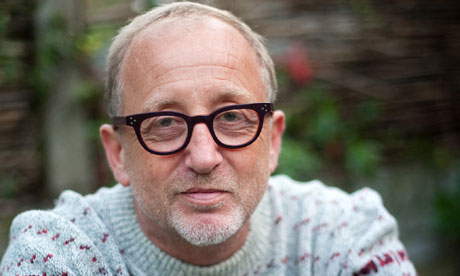
Of the many battlegrounds on which one fights in a family, food is one of the most poisonous – which is ironic, since it is meant to be all about nutrition. There are many fronts to this war, but the most fundamental is getting your children to eat what you want them to eat rather than what they want to eat. This is most poignantly represented in literature in Jonathan Franzen's The Corrections when one of the main characters tries to teach his son to eat his food. He makes him stay at the table until he finishes it, but then forgets about him and goes to bed, leaving him stubbornly stranded until the small hours.
The idea of forcing children to finish their broccoli, or beans, or whatever green object it happens to be, is one that most parents try sooner or later. That is how they find out that it doesn't work. Nothing, in fact, works. And it is my view that the more you bully your child into eating the "right" food, the more likely you are to end up with a teenager with food issues because they are likely to come to associate eating with stress.
I am not saying that one should leave children to sustain themselves on crisps and chocolate bars. I am merely pointing out that the need to make our children "eat well" may be rooted in matters other than the wellbeing of the child.
In my early years as a father, getting my children to eat what I wanted them to drove me to fury. I remember one epic battle when I tried to get Jean, then aged about eight, to eat a single pea. I failed. And I was furious. But I doubt it was really fury about the fact that she wasn't getting enough vitamins.
Louise, my youngest daughter, is similar in her determination to limit her diet to whatever she likes the taste of. This doesn't vex me so much now, partly because I have become lax and fatalistic about parenting, but also because I believe she will grow out of it.
Also, nutrition is a very inexact science – I understand there are tribal cultures in which a very narrow range of foods is consumed, yet they still produce healthy, well-nourished adults. Nevertheless, I still get mightily irritated if I, or my wife, have gone to the trouble of making a "proper meal" – something other than rice, potatoes or pasta – and Louise responds with a pointed "Yeuch!".
If only the frontier of the battlefield ended there. But my wife's reaction to my cooking is much the same as Louise's is to hers. Far more able at the stove than me, she tends to be dismissive of my efforts. I tried doing a barbecue recently and, after several complaints about the correct temperature of the charcoal, I tetchily handed the whole thing over to her. When I try to prepare anything, she has a tendency to stand over me to make sure I'm doing it "right" – ie her way.
Ihadn't done much cooking when I first met my wife, and I served her up something from a 1970s cook book involving tinned sardines, raisins, pine nuts and pasta. She has never forgotten it and has since decided that I am some sort of debased, archaic version of the Galloping Gourmet (one of the first TV chefs, with an affinity for prawn cocktails and gammon steak). I cannot seem to escape this pigeonhole for all my Diana Henry/Nigel Slater-inspired efforts.
For food is not simply, or even primarily, about nutrition or even enjoyment. It is also about memory, control, love and much besides. And it is not only people with anorexia and bulimia who have an unhealthy attitude to it. It is rather like money, in that we all project our own personal obsessions on to the subject. Because when we feed one another, we are not only serving up portions of food – but great dollops of meaning.
• Follow Tim on Twitter @timlottwriter

